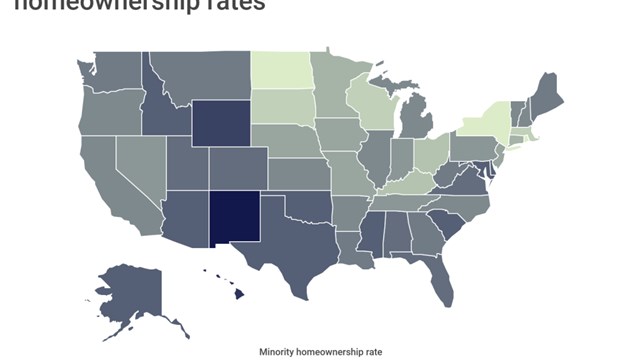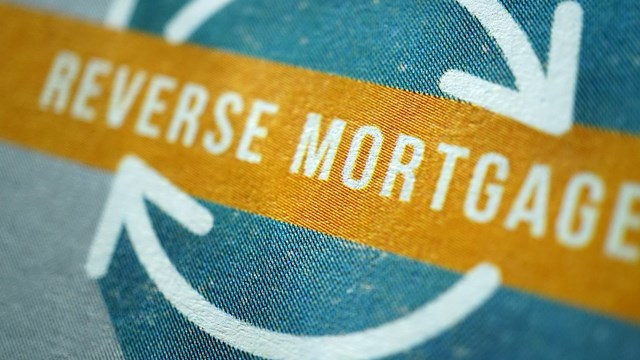You always want to feel safe in your home, but as the past few years have proven, you never know when a major calamity or weather disaster is going to strike. While most of New York City proper wasn’t hit as hard by Superstorm Sandy as some other states last year, it did open some eyes in the condo and co-op communities about what could happen to the property if something major was to occur. After all, insurance doesn’t always cover everything.
Any financially solvent co-op or condo building has both an operating budget to cover day-to-day expenses associated with running the building, and a reserve fund that’s intended to pay for larger repairs and capital improvement projects. Still, you can’t plan for everything and not having enough funds in an emergency can be the downfall of any building.
“Some situations that may land a residential common interest community such as a co-op, condo or HOA in financial jeopardy include major capital projects that weren’t funded appropriately, being over-leveraged in terms of debt because the building has borrowed too much, an increase in interest rates and a failure to pay down debt, an unrealistic operating budget based on the board’s fear of instituting an increase in maintenance/common charges, and financial malfeasance on the part of the board and/or management,” AKAM president Michael Berenson says. “A board should be able to rely on management to raise red flags long before such situations devolve into a serious financial problem.”
Bruce A. Cholst, a partner with the law firm of Rosen Livingston & Cholst LLP in New York, says all these scenarios presume that they didn’t provide for a safety net.
“Think back to Hurricane Sandy or a catastrophic event like a fire or any other act of God, which causes extensive damage to the building or common elements,” he says. “With a combination of no reserves, it will put the building in financial trouble.”
Seth J. Pruss, Esq. of the law firm of Himmelfarb & Sher, LLP in White Plains, says there are a number of possible scenarios that could lead to a building or HOA going bankrupt, or finding itself suddenly in financial extremes.
These include unit owners/shareholders not paying their common charges/maintenance; condominium/HOA unit owners being foreclosed upon by their banks and the foreclosure sales being insufficient to pay off the condo/HOA; judgments against the condominium board or the co-op or HOA that are not covered by insurance (possibly because of a lapsed policy); having inadequate reserve funds and a building in deteriorating condition; a failure to properly budget and collect sufficient fees over the years; or if a large number of units/shares are owned by the sponsor (or successor sponsor), and the sponsor has financial difficulties or files bankruptcy.
“Options available to boards in these situations are to levy assessments, increase maintenance/common charges, increase financing by obtaining a co-op or condominium loan, or increase supplemental amenities fees (such as fees for storage spaces or parking spaces),” he says. “Boards may also be able to sell certain undeveloped space to unit owners/shareholders, such as basement space or hallway space.”
If a board did file for bankruptcy in order to discharge unsecured debt, Pruss says, such as judgments, it could potentially improve the terms of their mortgage through the bankruptcy process.
Taking Action
A hypothetical emergency could be anything from flooding without having proper flood coverage to fraud or malfeasance on the part of a board member, to massive legal bills because of a board member acting in bad faith and coming out on the wrong side of litigation. If an emergency happens and the building is fearful of going into financial dire straits, there are options.
Michael Rogoff, vice president of finance for AKAM, a New York City-based management firm, says boards can look at such options as increasing maintenance/common charges, and/or levying one or more assessments, to meet the required funding levels; financing/re-financing (assuming borrowing was not the cause of the problem in the first place); increasing revenue through creative use of building space or other resources; and decreasing costs through such means as cutting staff or building services.
According to Rogoff, co-ops are typically at more risk because they can have more debt than a condo, which does not have an underlying mortgage. On the other hand, co-ops can borrow where condos can’t. Additionally, in a condo unit owners pay individual real estate taxes, whereas in a co-op all shareholders are responsible for their proportionate share of real estate taxes, so condos cannot default on taxes whereas co-ops can. Co-ops have the option of financing.
Personal Problems
A major financial catastrophe will hurt more than just the building, it can impact the individual unit owners as well. If a cooperative corporation is in such deep financial distress that it goes into receivership, that is a very bad sign for the shareholders.
“Shareholders can decide to come together to save the co-op with their own personal funds, but in the most extreme cases, when a co-op defaults, there is the possibility that it could lose its cooperative status, in which case the shareholders would lose their investments (but still be liable to their individual lending institutions for their personal loans on the units),” Berenson says. “Under all circumstances, if a building is in financial turmoil, and/or if shareholder/unit owner maintenance/common charges is very high, and/or if the building is severely over-leveraged, it’s going to hurt the value of the apartments and the building as a whole.”
Co-ops vs Condos
Cholst says co-ops are better fortified to handle emergency situations than condos, and it all boils down to money since they are more equipped to get money faster.
“You need an emergency line of credit, an emergency loan or if you can’t get it from the bank, a private lender, such as a resident in the building who cares enough to lend a helping hand,” he says. “Or, a workout with creditors on a comprehensive payment plan.”
According to Pruss, co-ops are at the least risk because there are typically less restrictions on boards regarding raising money. Also, unlike condominiums and HOAs, debts to the co-op come before shareholders’ first mortgages. If a mortgagee forecloses on a shareholder, it does not foreclose the co-op’s lien.
“Condominiums are at more risk than co-ops, because their offering plans and/or bylaws often include restrictions on how they can raise money—such as requiring a super-majority of unit owners to approve assessments,” Pruss says. “Additionally, condos, like HOAs, are behind the unit owner’s first mortgagees in order of priority.”
Unlike condominiums and co-ops, HOAs are not protected by the Condominium Act. For example, both condominiums and co-ops are entitled, statutorily, to direct payments from a shareholder’s/unit owner’s tenant, if such shareholder/unit owner is not paying their maintenance/common charges. HOAs are not.
Warning Signs
Most of these scenarios involve unexpected emergencies, but there are warning signs resident owners should pay attention to that might indicate that their building is in serious financial trouble and at risk for default or bankruptcy in the event of a crisis.
“Co-op shareholders and condo unit owners owe it to themselves to review the annual audited financial statement provided to them by their building’s independent auditor,” Rogoff says. “Attention should be paid to the building’s assets and liabilities; if payables are very high and/or if there is a very low cash balance, these are concerning signals. If no audited financial statement has been provided at the close of the building’s fiscal year, that is a tremendous warning sign.”
Also of concern are buildings where maintenance or common charges have not been raised for several years, or increases do not keep pace with increased costs of operation.
“They should be on the lookout for changes in the building’s condition and see if the building is physically decrepit,” Cholst says. “If it’s neglected, that’s a tell-tale sign that the association is running without an ability to pay for repairs.”
Final Thoughts
If a building does need to go into bankruptcy, many problems will result.
“If the building files bankruptcy, it would have a detrimental effect on the building’s credit and its ability to obtain financing at a market rate for 7-10 years,” Pruss says. “Any default under a loan, or any mechanic’s liens filed would have a detrimental effect on the credit of the building, and could affect available interest rates, etc.”
As for the unit owners, Cholst says a building filing for bankruptcy indirectly hurts them. Not only will they lose their equity in the unit, becoming renters or squatters in the process, most of them will have underlying mortgages on their own units and still be on the hook for payments.
“They won’t suffer adverse credit as a result of something that happens to their association directly, but their mortgages are still due,” he says. “Without a place to live and having to find resources for new shelter, they may be hard-pressed to make those mortgage payments and that could affect them down the line.”
Even if an association or condo building manages to survive a financial meltdown, its financial prospects in the future will be greatly compromised but money won’t be impossible to borrow.
“The building’s reputation will linger and needs to be rebuilt, but as far as banks wanting to lend to a co-op, it’s all based on a loan-to-value ratio,” Berenson says. “Even if a co-op has a bad history, the building may pay a slightly higher interest rate, but someone will lend to you.”
Cholst adds that for the foreseeable future, there will be a black mark on associations who want to borrow again or creditors who are doing work without getting paid fully up front.
“At best, these buildings will be scrutinized for a long time to come and potential lenders and creditors will be wary,” he says. “Additionally, buyers doing their due diligence will red flag them for years to come.”
Keith Loria is a freelance writer and a frequent contributor to The Cooperator.







Leave a Comment